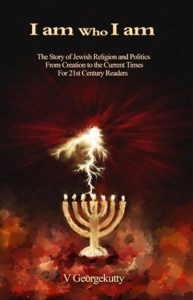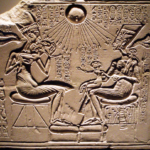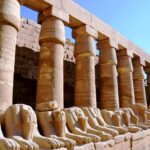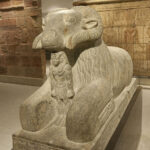“The Bible may be an arresting and poetic work of fiction, but it is not the sort of book you should give your children to form their morals”
(Richard Dawkins, ‘The God Delusion’)
There are two ways in which scripture might become a source of guidance for moral living. One of it is through the instructions it carries on ethical living. The ‘Ten Commandments’ is an example of such direct teachings. In fact, the first five books of the Hebrew Bible constitute the ‘Holy Law’ (Hebrew: Torah) – the divine commandments by which the Jews must live. Christians incorporated the Hebrew Bible into their scripture as the ‘Old Testament’. The second way in which the scripture acts as a moral guide is by the behavioural examples set by God and the special people chosen by God to lead and guide the plain devotees – the role models of the faith. Unfortunately, in the Bible, both these paths present a system of morals, which any civilized person, whether religious or not, would find repugnant to say the least. Let us look at a few examples from the Bible to see how the God of the Old Testament and some of his chosen men could be an evil influence on the modern sense of morality.
Richard Dawkins, ethologist (a zoologist who studies the behaviour of animals in their natural habitats), evolutionary biologist and author, writes in his international best seller, ‘The God Delusion’, “The God of the Old Testament is arguably the most unpleasant character in all fiction: jealous and proud of it; a petty, unjust, unforgiving control-freak; a vindictive, bloodthirsty ethnic cleanser; a misogynistic, homophobic, racist, infanticidal, genocidal, filicidal, pestilential, megalomaniacal, sadomasochistic, capriciously malevolent bully.” No doubt, the faithful would condemn Dawkins to eternal damnation. But that does not alter the reality that every adjective employed in the above statement can be verified and confirmed from the Bible.
The Old Testament God created the universe in five days and created humans on the sixth day. He then put Adam and Eve, the first couple, in the Garden of Eden (the Paradise) and commanded them not to eat the fruits of a particular tree – the tree of the knowledge of good and evil. We do not know why an all knowing (Omniscient) God did not know that human frailty would lead to the breaking of the command. Unsurprisingly, Adam and Eve ate the forbidden fruit and an angry God cursed them and evicted them from paradise to earn their living by the sweat of their brows. The Bible teaches that these first parents passed on the blemish of their sin from generations to generations making every human, born on the earth, a sinner by default. Of course, the logic of this belief is difficult to grasp.
Two sons named Cain and Abel were born to Adam and Eve. Both brought offerings to God. And for mysterious reasons, God accepted the offering of Abel, the younger of the two and rejected that of Cain. A jealous Cain killed his brother – the first recorded murder in human history as presented in the Bible. Although Abel was his favourite, God did not find it necessary to save him from the hands of his brother. Thus, God allowed the murder of the innocent and the survival of the murderer – a predominant feature of later history. If we go by the biblical story, the world came to be populated by the progeny of a fratricide. No wonder, the earth became corrupted and God had to clean up the mess after a while.
God caused a great flood to kill of all living beings on the earth. The only survivors were the eight people belonging to the family of a man named Noah, besides the animals he took into the ark. The moral of the story of Noah is appalling. God mercilessly annihilated everything that breathed since he, in spite of being all knowing (omniscient) and all powerful (omnipotent), could not come up with a less tragic option that would have spared at least the little children. Some of the modern theologians might protest that they don’t take the book of Genesis literally any more. But how can we pick and choose bits of scripture to believe or to write off as allegories. In any case, a massive majority of the faithful still take their scriptures, including the story of Noah, literally true. Many are ready to fight and kill anyone questioning the infallibility of the scripture.
Now, let us turn our attention to the behaviour of some of the Biblical characters. Abraham is considered the revered father of monotheism by three major faiths in the world today – Judaism, Christianity and Islam. Abraham went to Egypt with his wife Sarah in order to pull through a famine. He realized that such a charming woman as Sarah would tempt the Egyptians, which would put his own life, as her husband, in serious danger. So he decided to parade her as his sister. Sarah was promptly taken into Pharaoh’s harem. And Abraham, her ‘brother’ became quite rich because of the favour shown to him by the Pharaoh. God was not quite happy about this cosy arrangement and sent plagues on Pharaoh and his house. (One wonders why Abraham was not made accountable for his sin of allowing his wife to sleep with the Pharaoh. But, Bible presents women as the property of man to be used as the man deems fit). Pharaoh kicked Abraham and Sarah out of Egypt (Genesis 12: 18-19).
Weirdly, it seems that the couple later tried to pull the same stunt again, this time with Abimelech the King of Gerar (Genesis 20: 2-5). When the truth came to light, Abimelech too expressed his indignation, in almost identical terms to Pharaoh’s. Incidentally, the Book of Leviticus says, “If a man marries his sister, the daughter of either his father or his mother, and they have sexual relations, it is a disgrace. They are to be publicly removed from their people [which might mean they should be put to death in public]. He has dishonoured his sister and will be held responsible.” (Leviticus 20:17). But Sarah was Abraham’s step-sister – his father’s daughter in another wife. How come Abraham did not dishonour his ‘sister’? Of course, the Law came later in the times of Moses. But God, the law-giver, should have known his law irrespective of when he chose to convey it to the people!
God ordered Abraham to make a burnt offering of his son born in his wife Sarah in her old age. Abraham built an altar, put firewood upon it, and trussed Isaac up on top of the wood. His sharpened knife was ready to s slash the throat of Isaac when an angel dramatically intervened with the news of a last-minute change of plan: God was only joking after all, ‘tempting’ Abraham, and testing his faith. By the standards of modern morality, this disgraceful story is an example simultaneously of child abuse, bullying in two asymmetrical power relationships. It is also the first recorded use of the Nuremberg defence: ‘I was only obeying orders.’
One cannot help wondering how a child could ever recover from such psychological trauma. In fact, the later story of Isaac proves that he had indeed suffered severe psychological trauma. He turned out to be an overly pious, sedentary and highly emotional man, whom his wife Rebekah and son Jacob easily hoodwinked in his old age. Yet, God renamed Jacob, who cheated his own father taking advantage of his blindness, as Israel and chose his decedents as his own people – the Israelites! Irrespective of the view the modern theologians will take, how should we take the story, if not as literal truth? As an allegory? An allegory for what? As a moral lesson? But what kind of morals could one derive from this horrifying story of a father trying murder his son in order to prove his faith, that too a supposedly all knowing God?
The Bible carries another story of human sacrifice, which had a much more disastrous ending. The military leader Jephthah made a bargain with God that, if God would guarantee Jephthah’s victory over the Ammonites, Jephthah would offer as a burnt offering of ‘whatsoever cometh forth of the doors of my house to meet me, when I return’ (Judges 11). Jephthah defeated the Ammonites and returned home victorious. Not surprisingly, his daughter, his only child, came out of the house to greet him. And she was the first living thing that came forth of the doors of his house. Understandably Jephthah was distraught and rent his clothes in despair. But there was nothing he could do about the predicament in which he found himself. The girl requested that she be allowed to go into the mountains for two months to bewail her virginity. When she returned, Jephthah dutifully offered her as burnt offering to God, who obviously relished the ‘sweet’ aroma of the burning flesh of an innocent girl!
Haran, the brother of Abraham, died and Lot, the son of Haran, came under the protection of Abraham. Lot and his family comprising of his wife and two daughters were living in a place called Sodom and Gomorrah. God decided to destroy the sinful Sodom and Gomorrah and deputed three of his angels to Abraham to convey his decision. Abraham pleaded with God. (One wonders why Abraham did not consider it necessary to plead with God for saving the life of his son Isaac). In almost a replay of the Noah story, God decided to spare Lot and his family. Two male angels were sent to Sodom to warn Lot to escape from the city before disaster struck. Lot welcomed the angels into his house.
Suddenly, all the men of Sodom gathered around his house. They said, ‘Where are the men who came in to thee this night? Bring them out unto us, that we may know them’ (Genesis 19: 5). Of course, ‘to know’ has the euphemistic meaning – to have sex. Lot put forth an alternative proposal to save the ‘back’ of his honoured male guests. He said, ‘I pray you, brethren, do not so wickedly. Behold now, I have two daughters which have not known man; let me, I pray you, bring them out unto you, and do ye to them as is good in your eyes: only unto these men do nothing; for therefore came they under the shadow of my roof’ (Genesis 19: 7-8).
We do not know what lesson this weird story is meant to teach the faithful. But it surely speaks volumes about the ‘respect’ accorded to women in this intensely religious culture. The daughters of Lot were saved since the angels succeeded in repelling the marauders by miraculously striking them blind. They then urged Lot to flee from the place forthwith. The whole household escaped. But, the good Lord turned the wife of Lot into a pillar of salt because she committed the silly offence of looking over her shoulder at the fire and brimstone that the heavens were showering over Sodom!
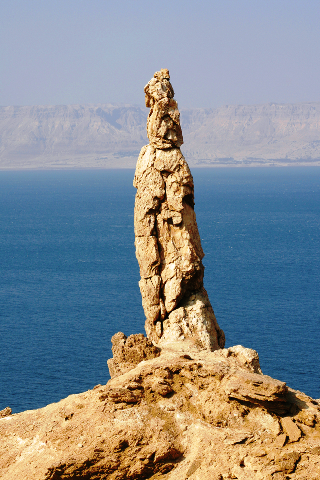
The story does not end. The young daughters of Lot lived with their father in a cave up a mountain. Starved of male company, they decided to satisfy their carnal urges with the only male available on site – Lot, their father. They make their father drunk and copulate with him. Lot was beyond noticing when his elder daughter arrived in his bed or when she left. Rather intriguingly, he was not too drunk to impregnate her. The next night it was the turn of the younger one. Again Lot was too drunk to notice. But he had no problems impregnating her too (Genesis 19).
We can find an eerie echo of the story of Lot in chapter 19 of the Book of Judges. An unnamed Levite (Jewish priest) was travelling with his concubine in Gibeah. They spent the night in the house of a hospitable old man. While they were eating their supper, the men of the city came and beat on the door, demanding that the old man should hand over his male guest, the Jewish priest, ‘so that we may know him’. In almost exactly the same words as Lot, the old man said: ‘Nay, my brethren, nay, I pray you, do not so wickedly; seeing that this man is come into mine house do not this folly. Behold, here is my daughter a maiden, and his concubine; them I will bring out now, and humble ye them, and do with them what seemeth good unto you; but unto this man do not so vile a thing’. Again, the misogynistic ethos comes through, loud and clear. The phrases used by Lot in the earlier story and the old man in this story sound particularly chilling. Lot said, ‘do ye to them as is good in your eyes’ and the old man said ‘humble ye them’. The old man (as well as Lot) was telling the men: Enjoy yourselves by humiliating and raping the females (even my own daughter), but show due respect for my male guests.
The Levite handed over the concubine to the mob. ‘They knew her and abused her all the night until the morning: and when the day began to spring, they let her go. Then came the woman in the dawning of the day, and fell down at the door of the man’s house where her lord was, till it was light’ (Judges 19:26). In the morning, the Levite found his concubine lying prostrate on the doorstep and said with callous abruptness – ‘Up, and let us be going.’ But she didn’t move. She was dead. So he ‘took a knife, and laid hold on his concubine, and divided her, together with her bones, into twelve pieces, and sent her into all the coasts of Israel’ (Judges 19: 29). Disgusting and horrible! Pray what kind of a ‘role model’ is this minister of the good Lord setting?
Moses, even more than Abraham, is a likely role model for followers of all three monotheistic religions. Abraham may be the original patriarch, but Moses is the doctrinal founder of Judaism and its derivative religions – Christianity and Islam. Moses was at the summit of Mount Sinai, receiving the divine Law and getting the tablets of stone graven by him. The people down below had orders prohibiting them even touching the mountain. Anyone who violated the prohibition was to be put to death. Obviously Moses was apprehensive of some curious guy sneaking after him to the top of Sinai to find out what exactly was going on up there. Moses stayed in the mountain for forty long days. When the people saw that Moses was delayed, they gathered themselves together unto Aaron, and said to him, ‘Make us gods, which shall go before us; for as for this Moses, the man that brought us up out of the land of Egypt, we know not what is become of him’ (Exodus 32: 1). Aaron got everybody to pool their gold, melted it down and made a golden calf. He then built an altar for the new deity, so people could start sacrificing to it. (Lesson: Surrender your gold and get the god of your choice – a 21st century reality too).
Moses hurried down the mountain as directed by God, carrying the stone tablets on which God had written the Ten Commandments. When he saw at the mountain base the golden calf and people queuing up to worship it, he went mad with anger and smashed the stone tablets to smithereens. God did not mind Moses breaking the stone slabs he wrote with his own hand! Moses seized the golden calf, burned it, ground it to powder, mixed it with water and made the people drink it. Then he told everybody in the priestly tribe of Levi, to which Moses and Aaron belonged, to pick up a sword and kill as many people as possible. Some three thousand people were massacred. But Aaron, the idol maker, was spared. (Of course, the minsters of the good Lord can do no evil! And this is exactly what the church claims even today. So, people queue up to kiss the hands of a rapist Bishop). One might have hoped three thousand was enough body count to assuage God’s jealous sulk. But no, God wasn’t finished yet and sent a plague upon what was left of the people, which killed many more thousands.
God’s maniacal jealousy against alternative gods recurs continually throughout the Old Testament. It motivates the first of the Ten Commandments (“I am the Lord thy God! Thou shalt have no other Gods but me!”). Having promised to drive out of their homelands the unfortunate Amorites, Canaanites, Hittites, Perizzites, Hivites and Jebusites, God gets down to what really matters: rival gods “ … ye shall destroy their altars, break their images, and cut down their groves. For thou shalt worship no other god: for the Lord, whose name is Jealous, is a jealous God…” (Exodus 34: 13-17). (Rather than condemn the unspeakable vandalism of the Taliban, who dynamited the 150-foot-high Bamiyan Buddhas in the mountain ranges of Afghanistan, we should praise them for their righteous piety!)
The ethnic cleansing, begun in the time of Moses, is brought to bloody fruition in the book of Joshua, a text remarkable for the bloodthirsty massacres it records and the xenophobic relish with which it does so. God made a clear distinction between the people who lived in the land that the Israelites sought to occupy and those who lived a long way away. People who lived far away were to be invited to surrender peacefully. If they refused, all the men were to be killed and the women carried off for breeding. ‘But of the cities of these people, which the Lord thy God doth give thee for an inheritance, thou shalt save alive nothing that breatheth: But thou shalt utterly destroy them…’ The Bible story of Joshua’s invasion of the Promised Land is morally indistinguishable from Hitler’s invasion of Poland, or Saddam Hussein’s massacres of the Kurds and the Marsh Arabs.
The people who hold up the Bible as an inspiration to moral rectitude should take some time to read what is actually written in it? The following offences merit the death penalty (Leviticus 20): cursing your parents; committing adultery; making love to your stepmother or your daughter-in-law; homosexuality; marrying a woman and her daughter; bestiality (and, to add injury to insult, the unfortunate beast is to be killed too). You also get executed, of course, for working on the Sabbath. The children of Israel found a man in the wilderness gathering sticks on the forbidden day. They arrested him and then asked God what to do with him. And the Lord said unto Moses, “The man must die. The whole assembly must stone him outside the camp.” So the assembly took him outside the camp and stoned him to death, as the Lord commanded. (Numbers 15: 32-36). (Does the Law permit the people to throw stones to kill a man on Sabbath?) Should people today base their lives on such an appalling role model as Yahweh or his chosen men?
The point is that it is dangerous for people get their sense of morality and ethical living from the scripture. If we are to go by the morality of the Old Testament, we should think it just and proper to execute anybody who chose not to observe Sabbath. We would stone to death any new bride who couldn’t prove she was a virgin, if her husband pronounced himself unsatisfied with her. We would be willing sacrifice our children to prove our faith and execute disobedient children. We should try to save our lives and get rich on the side by letting other people sexually exploit our wives, daughters and concubines. We should annihilate everyone holding a different faith or believing in a different god. We should destroy all other religious symbols to prevent our ‘sons go a whoring after’ other gods. Truly, the Bible is not the sort of book you should give your children to from their morals.
You think the New Testament is any different? I am not sure. Maybe, we will deal with it another day, assuming God has not already made up his mind to smite me forthwith for blasphemy! But everything I have said is written in the ‘Holy Scripture’ of the Jews and Christians, although the post was provoked by the book of Dawkins, an atheist – The God Delusion.
———————–


